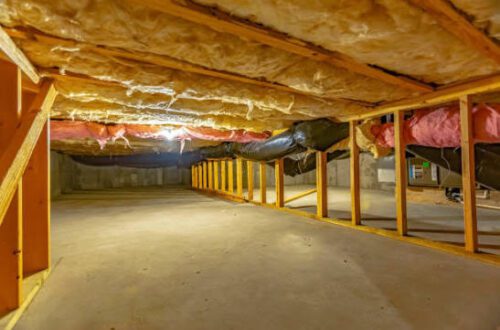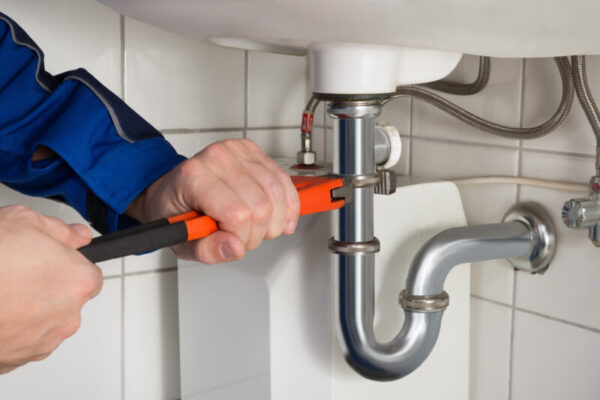Are you curious about the different types of power for your home? If so, you need to learn about all the different kinds of energy for your home.
When powering your home, there are many options to consider. From solar to propane, each type of power offers a variety of pros and cons, advantages and disadvantages, advantages and more.
Which type is right for you? We’ve got you covered. Here’s a quick rundown of the most popular types of power and what you need to know about each one.
Grid Power
Grid power is a way to get electricity to your home from the energy grid in your city, town, or area. Most of the energy used from the grid comes from big power plants to people’s homes through high-voltage lines and transformers.
Among these necessary components are various transformers, which play a crucial role in stepping down the high-voltage electricity from the grid into safer levels for household use. These transformers are integral in ensuring that the electricity reaching homes is at the right voltage to power appliances and electronics without causing damage or safety hazards.
Grid power is the most secure way to get energy because it is always on and you can use it whenever you need. It is also cheap, which makes it a popular choice for many houses.
Solar Power
Solar power is becoming more and more popular as a different way to power your home. Imagine using a source of energy that doesn’t use any energy and also helps you cut down on your carbon footprint.
You can use solar panels to collect the sun’s energy and turn it into power. Then, you can use this energy to run the appliances and electronics in your home.
Solar power has a lot of benefits, such as lower monthly energy bills, no need for expensive and inconvenient energy equipment, and less damage to the environment. Depending on how big your solar system is, you may be able to power more than one home with it and even make money by selling the extra energy you make.
If you are thinking about solar power, you should contact your local solar panel installation services to make sure you get the right system for your home.
Wind Power
Wind power is a good source of green energy that can help people save money on their energy bills. You can use wind power on and off the grid.
Wind power is often used in homes in the form of residential wind turbines or rooftop windmills. Wind turbines for homes are bigger, more powerful turbines that stand alone and place in an open area. Even when there isn’t much wind, they can still make electricity.
Rooftop turbines are smaller turbines that they place right on your roof. They usually make more power than residential turbines. In either case, the key parts of a wind power system are the same: wind turbines, housing for the turbines, electrical cables, and an inverter.
Hydroelectric Power
Hydroelectric power is the most used renewable energy for powering a home. They generate it using the pressure from flowing water created in dams and other artificial constructions such as canals.
They create this to capture potential energy from the water and convert it into kinetic energy, allowing clean and renewable energy generation. Homeowners can produce hydroelectric power from a small dam on their property or access it through a local utility provider.
Even though hydroelectric power requires more upfront planning and cost than other energy sources, it has the potential to lower an individual’s power bill.
Geothermal Power
Geothermal power is a renewable energy source that utilizes the Earth’s natural heat to provide electricity and hot water. It is sustainable, affordable, and disruptive to the environment.
Drilling several meters into the Earth’s surface allows a well or borehole to access the geothermal energy. They connect the geothermal heat pump to the drill, using the heat to warm a home or business.
Geothermal power is also beneficial because it is clean and produces no air pollution. You can use it to generate electricity for entire communities and you can use it to heat homes and businesses.
It is a reliable energy source and it can use in various climates. Geothermal power is becoming more popular as the environmental impact of traditional energy sources such as coal and oil is becoming more clear.
There are many types of geothermal energy, but all have the same goal of providing renewable energy to homes and businesses.
Biomass Power
Biomass power is using organic materials or biomass to generate electricity or heat. Biomass is any organic matter that it can use as a renewable energy source.
This source is most used to power residential homes in rural areas. Biomass power is more sustainable than other energy sources as it doesn’t rely on fossil fuels.
It’s an efficient power source and often has the potential to reduce energy costs. You can use different types of biomass, such as wood, firewood, waste, agricultural land, and manure.
Biomass requires smaller space and it can build as an integrated home-use system. Homeowners in rural areas may enjoy using biomass power if they have access to a large amount of biomass or enough farmland and are willing to invest in the infrastructure and equipment needed to make this power source possible.
Backup Power
Backup power is an essential consideration for homeowners when choosing the type of power for their house. There are several different options you can go with, such as a generator or a battery backup system.
A generator is ideal if you need a lot of power for an extended period, such as in a power outage or an emergency. Batteries are generally less expensive than generators and a great solution if you’re looking for power for low-energy lighting.
Understanding the power options available is essential to ensure you choose the option best suited to your specific needs and budget.
Guide to the Types of Power
Understanding your home’s different types of power is essential for proper functioning. Whether you’re an experienced handyman or a new homeowner, take the time to review your options and determine which type of power works best. If you need help, talk to an expert today and get your questions answered.
Check out our other blog posts for more home and lifestyle tips.





